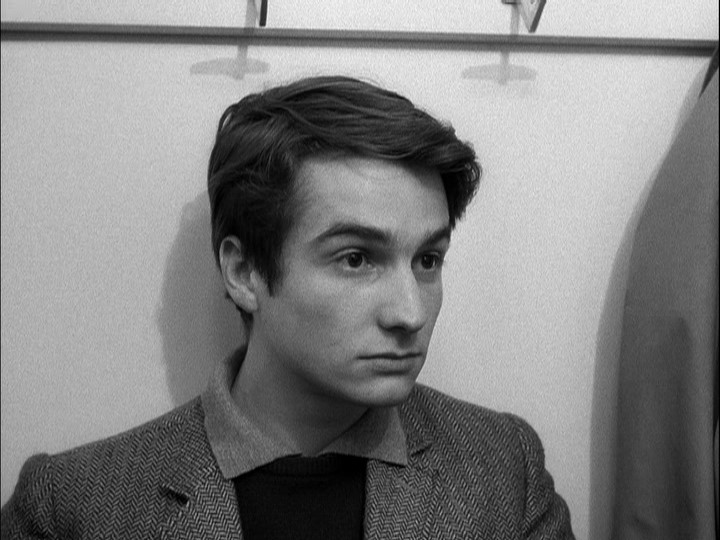Morrey states “Love is rarely mentioned in this world and, when it is, it is often summarily dismissed… Paul asks [Mademoiselle 19 ans] if she often falls in love: ‘sûrement pas,’ (certainly not) she replies immediately” (49). Here Morrey explains that the emphatic “no” is in response to love, but it seems clear to me that the “no” is in emphatic opposition to the “often” for reasons of impropriety that become clear in the context of a discussion of birth control.
I believe that Miss 19 actually proves to be rather feminist and independent right in the middle of the capitalist whirlwind. Recall that Paul is the Godard stand-in: when Paul asks if she prefers being Miss 19 more than finishing her degree, she corrects his assumption by saying “I’m happy to say I have both.” When he asks her to choose between the American System and Socialism, she does not, but describes the advantage of the American System is that women have more of a role – even today the role of women in French and American cultures is a point of contention (see the Strauss Kahn affair). Asked if she would like to have children, she says she’s not ready and wants more time for herself and to be independent. Asked what she thinks it means to be reactionary she says she approves of it. This I defend with the fact that she is not particularly political and doesn’t really even know what socialism is. In this context she answers intelligently that she doesn’t like yes-men, meaning people who go along with everything and there needs to be something in place to protect culture and tradition, which if there is anything admirable about the conservative politics in all of history, it is this position. It comes naturally, not as if from a party line Gaullist.
So the question is, is Morrey bending the film to fit his reading? Or even worse, is Godard bending his ethnographic footage in the editing room to fit his reading of the world? If we accept that Godard wants us to scorn Miss 19 for her reactionary, consumer ways because she is labeled a product herself and the (almost canned) laughter in the background, which is difficult not to do, upon a closer inspection of this scene, how can we conclude anything but that Godard is guilty of misogynist oversimplification?
Perhaps Godard is practicing his cinema thinking: if Paul is the stand-in for Godard who attempts to pigeonhole Miss 19 (and pigeonholes in general) and is unsuccessful, Paul’s death takes on another meaning. Is it that Godard murders him because he discovers that his view is too simple? If so, the film becomes a process of discovery, which causes Godard to throw out his first assumptions (i.e. Paul). In the second to the last scene Paul explains why he has given up the survey gig – by asking these questions he has inserted his own unconscious subjectivity into what should be an objective process and he must instead learn to see the world as it is. Morrey cites Haycock here to suggest that Godard’s confessed failure is in not being truly ethnographic and resorting to fiction, which may be true. It would be a better film though if his confession is for pigeonholing. But perhaps that’s too much to ask an auteur to learn in just one film.
Jerry Prokosch

